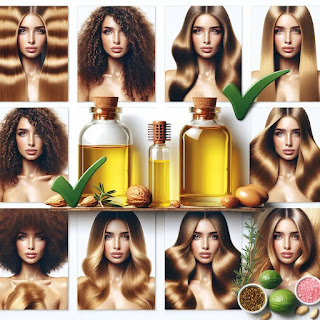Argan Oil vs. Jojoba Oil: Unveiling the Superior Skincare Solution
Introduction: Understanding the Essence of Argan Oil and Jojoba Oil
In the realm of skincare, the choice between Argan oil and Jojoba oil often perplexes consumers seeking the ultimate elixir for radiant, healthy skin. Both oils have gained acclaim for their purported benefits, ranging from moisturizing properties to anti-aging effects. In this comprehensive guide, we delve into the distinctive characteristics of Argan oil and Jojoba oil, deciphering their unique compositions and unraveling the secrets behind their efficacy.
The Origins: Argan Oil
Argan oil, derived from the kernels of the Argania spinosa tree indigenous to Morocco, boasts a rich history dating back centuries. Cherished by Berber women for its nourishing properties, this liquid gold contains a bounty of essential fatty acids, including oleic and linoleic acids, as well as potent antioxidants such as vitamin E. Renowned for its ability to hydrate and rejuvenate the skin, Argan oil penetrates deeply, imparting a youthful glow while combating free radical damage.
The Power of Jojoba Oil
In stark contrast, Jojoba oil, extracted from the seeds of the Simmondsia chinensis plant native to the arid regions of North America, stands as a formidable contender in the skincare arena. What sets Jojoba oil apart is its striking resemblance to the skin's natural sebum, making it an excellent moisturizer suitable for all skin types, including sensitive and acne-prone skin. Composed primarily of wax esters, Jojoba oil forms a protective barrier, locking in moisture without clogging pores, thus promoting balanced hydration and a supple complexion.
Battle of the Titans: Argan Oil vs Jojoba Oil
Hydration and Moisture Retention
Argan oil's lightweight consistency makes it an ideal choice for individuals seeking intense hydration without the greasy residue. Its rapid absorption into the skin imparts immediate nourishment, leaving behind a satin-smooth finish. Conversely, Jojoba oil's molecular structure mimics that of the skin's natural oils, making it a versatile moisturizer capable of regulating sebum production and preventing moisture loss, thereby fostering a harmonious moisture balance.
Anti-Aging Properties
The antioxidant-rich profile of Argan oil renders it a potent ally in the fight against premature aging. By neutralizing free radicals and promoting collagen synthesis, Argan oil helps diminish the appearance of fine lines and wrinkles, restoring elasticity and firmness to the skin. On the other hand, Jojoba oil's emollient properties enhance skin suppleness, reducing the visibility of age-related imperfections while promoting cell regeneration for a revitalized complexion.
Versatility and Application
While both oils offer multifaceted benefits, their distinct compositions lend themselves to varied skincare routines. Argan oil's non-comedogenic nature makes it suitable for facial moisturization, hair conditioning, and even nail strengthening. Conversely, Jojoba oil's gentle formulation makes it an excellent candidate for oil cleansing, makeup removal, and scalp treatment, catering to diverse skincare needs with unparalleled versatility.
Conclusion: Deciphering the Ideal Skincare Solution
In the eternal debate between Argan oil and Jojoba oil, the quest for the ultimate skincare solution remains subjective, dictated by individual preferences and skin concerns. While Argan oil reigns supreme for its deeply hydrating and anti-aging properties, Jojoba oil emerges as a formidable contender for its innate compatibility with the skin's natural oils. Ultimately, the choice between these two botanical marvels lies in understanding the unique needs of your skin and embracing the transformative power of nature's bounty.
Embrace the allure of Argan oil and Jojoba oil, unlocking the secret to radiant, youthful skin that transcends time.




Comments
Post a Comment